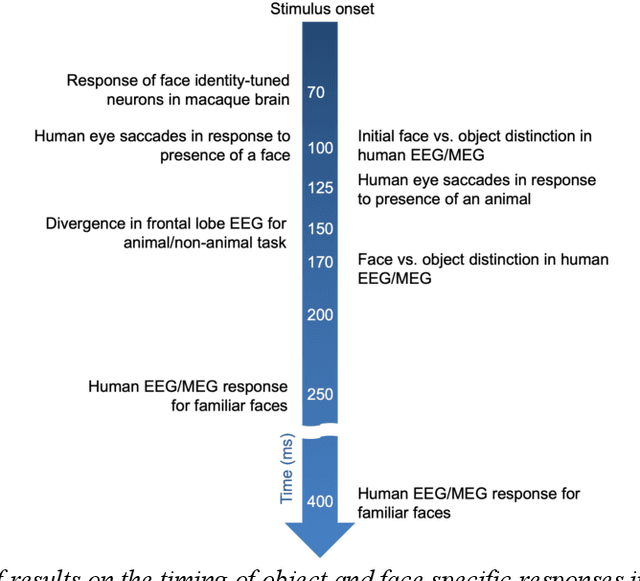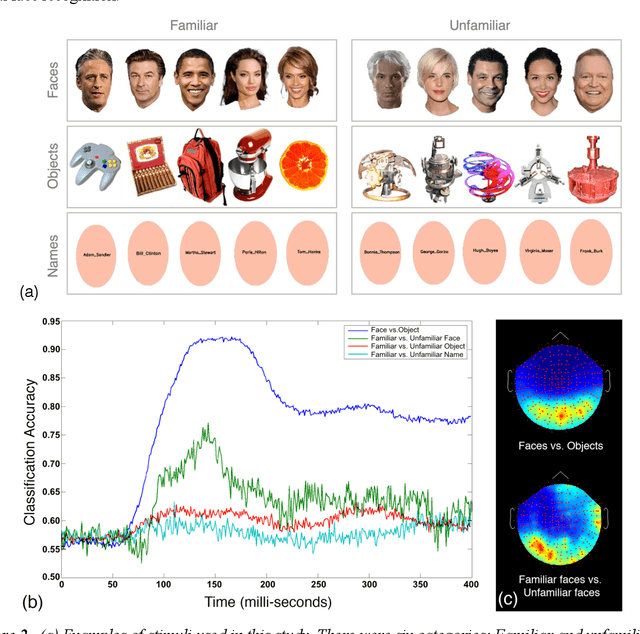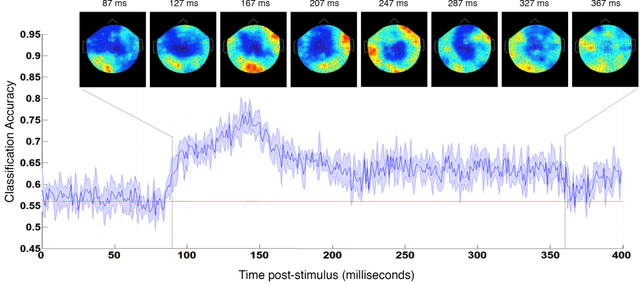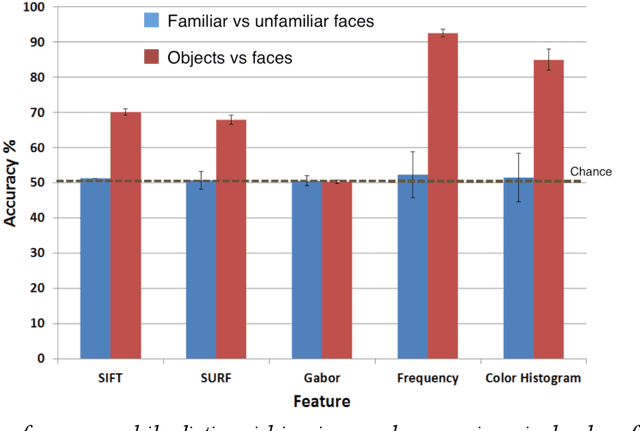Evan Ehrenberg
Neural Correlates of Face Familiarity Perception
Jul 31, 2022



Abstract:In the domain of face recognition, there exists a puzzling timing discrepancy between results from macaque neurophysiology on the one hand and human electrophysiology on the other. Single unit recordings in macaques have demonstrated face identity specific responses in extra-striate visual cortex within 100 milliseconds of stimulus onset. In EEG and MEG experiments with humans, however, a consistent distinction between neural activity corresponding to unfamiliar and familiar faces has been reported to emerge around 250 ms. This points to the possibility that there may be a hitherto undiscovered early correlate of face familiarity perception in human electrophysiological traces. We report here a successful search for such a correlate in dense MEG recordings using pattern classification techniques. Our analyses reveal markers of face familiarity as early as 85 ms after stimulus onset. Low-level attributes of the images, such as luminance and color distributions, are unable to account for this early emerging response difference. These results help reconcile human and macaque data, and provide clues regarding neural mechanisms underlying familiar face perception.
 Add to Chrome
Add to Chrome Add to Firefox
Add to Firefox Add to Edge
Add to Edge